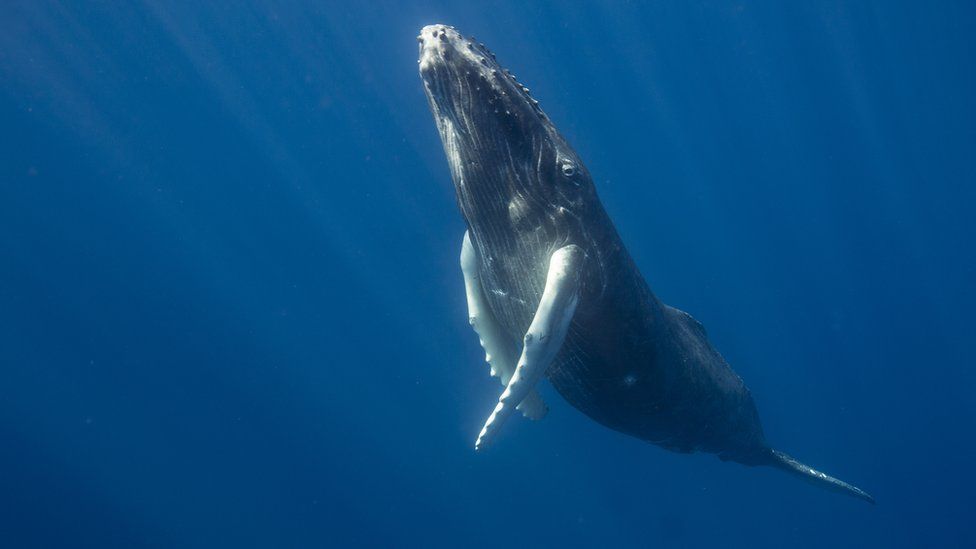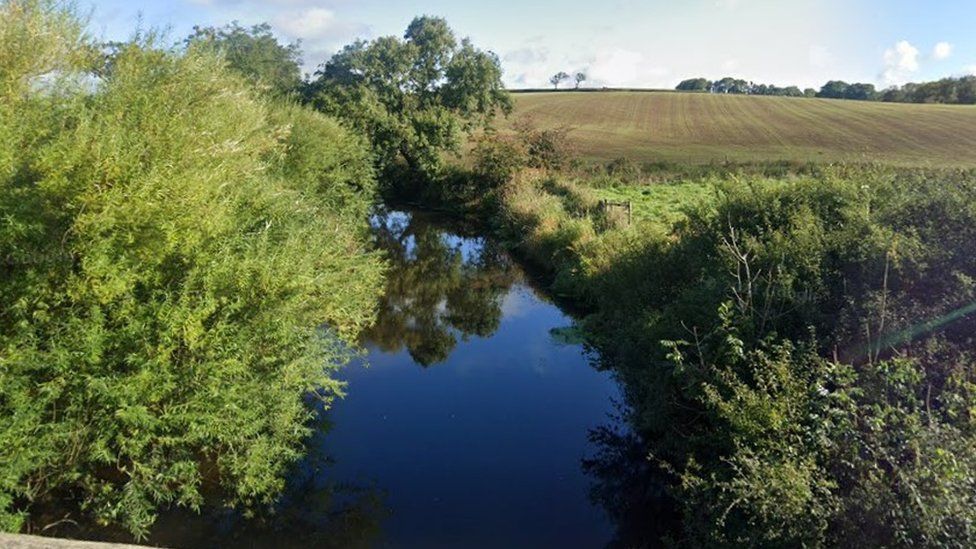After hearing humpback whales singing along the route, scientists have located a potential migratory corridor for them off western Ireland and Scotland.
Male humpback whales sing intricately structured songs, which are typically heard in the animals' tropical breeding grounds.
Singing was discovered in the North Atlantic waters by the Compass research project, which involves experts from Scotland and Northern Ireland.
If humpback whales frequently use the route, more research needs to be done.
Scientists used underwater microphones to record whale song in the waters off Scotland and Ireland.
The potential migration route runs along the west coast of the Outer Hebrides, through the Irish and Malin seas, and through the Atlantic Ocean.
It might be a part of the yearly migration of North Atlantic humpback whales from their breeding grounds off of west Africa and the Caribbean Sea to the warmer, more nutrient-rich waters.
The Scottish Association of Marine Sciences (Sams), based in Oban, and the Scottish government-designated Marine Scotland collaborated on the study with the Agri-Food and Biosciences Institute of Northern Ireland and Queen's University Belfast.
Exciting discoveries have already been made, according to Sams marine mammal expert Dr. Denise Risch.
After the Compass project concludes in December, the teams from these regions will continue to work with humpback whale researchers from other parts of the North Atlantic to use passive acoustics to further investigate humpback whale migration patterns in the larger North Atlantic as well as to look at how noise may affect singing humpback whales in the coastal waters off Northern Ireland. ".
The Irish-Scottish corridor will be the subject of additional research by PhD candidate Cathy Gibson of Queen's University Belfast.
All oceans have humpback whales, which eat small fish and krill for food.







